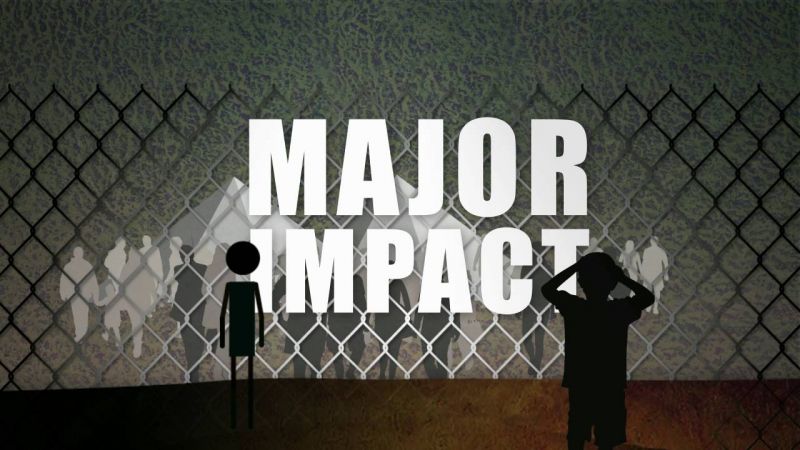Uninsured and Untreated: The State of Mental Health Today
When people go without the awareness, support and treatment they need, it impacts us all.
Written by Rachel Unger

01 About one billion people worldwide experience a mental or substance use disorder each year.
02 Not enough of us have access to treatment or insurance coverage, and mental health care can quickly become very expensive.
03 Despite troubling statistics, we’ve come a long way in decreasing the stigma around mental health. New treatments are being developed, and care is becoming more accessible.
One in five. Odds are that someone you know will be diagnosed with a mental health disorder. It could be you, your coworker, your family member or your friend. When people go without the awareness, support and treatment they need, it impacts us all.
Globally, close to one billion people experience a mental or substance use disorder each year. These disorders affect people of every gender, race, age, nationality, ethnicity, religion and socioeconomic status. Untreated, mental health issues have a ripple effect on individuals, families, communities and the wider world.
The World Health Organization estimates that 264 million people around the world live with depression, a leading cause of disability that has a significant impact on the global economy. Each year, depression and anxiety disorders cost the world economy $1 trillion in lost productivity. Worldwide, bipolar disorder affects 45 million people, schizophrenia affects 20 million people, and dementia affects 50 million people.
In the United States, major depression affects an estimated 17.7 million people, and anxiety disorders affect 48 million people. Serious mental health conditions like these cause $193 billion in lost earnings each year in the U.S.
Mental health and substance use disorders are highly prevalent, but it may surprise some to learn that the share of the world’s population with these disorders has stayed around the same for the past two decades. Although these numbers have held fairly steady, the psychological stress during the COVID-19 pandemic is driving a surge in mental health issues like anxiety, depression, substance use disorders and suicidal ideation, placing an even greater burden on systems already overstretched.
The treatment gap
Statistics show that mental health issues are common, but not enough people are getting the treatment they need. According to the Substance Abuse and Mental Health Services Administration, in 2018, more than 47 million Americans experienced a mental health condition, but fewer than half (43.3%) received treatment. And while global suicide rates have decreased in the past two decades, suicide rates in the United States went up 33% between 1999 and 2017.
All over the world, there is a large treatment gap for mental disorders. In high income countries, it’s estimated that between 35% and 50% of people with severe mental disorders don’t receive treatment. The estimated percentage of the population who receive no treatment in low- and middle-income countries—between 76% and 85%—is even greater.
A shortage of mental health providers is worsening this trend. The American Psychiatric Association reports that mental health workers only make up 1% of the global health workforce, and 45% of the world’s population live in a country with fewer than one psychiatrist per 100,000 people.

Making Mental Health a Global Development Priority
The World Health Organization looks at the roadblocks that prevent countries from addressing mental health.
Not enough of us are insured
Some countries have universal health coverage, which means people can access high quality health services without financial difficulties. Countries like Canada, Germany and England have taken away cost-sharing towards primary care visits. In France, prescription drugs copayments are waived for those with serious mental conditions like schizophrenia, bipolar disorder, and severe anxiety or depression.
In the United States, however, the situation is more complicated. The introduction of the Affordable Care Act (ACA) in the U.S. has led to a decline in the number of uninsured Americans. Still, the CDC estimates that 11% or 30.1 million people under the age of 65 were uninsured in 2018. The remaining 89% of people either had public insurance or private insurance.
There are also disparities among different states in the U.S. in terms of access to mental health care. The number of uninsured U.S. adults with mental health conditions in 2020 ranges from 2.7% in Massachusetts to 22.9% in Wyoming.
When individuals go without insurance, mental health treatment can quickly become unaffordable, and that leads to a lack of treatment. On average, U.S. adults who live with serious mental health conditions die 25 years earlier than others, largely due to treatable medical conditions. Those who have insurance still face major expenses due to rising prescription drug costs and a disparate number of mental health office visits being out-of-network and therefore more expensive. Insurance companies aren’t reimbursing out-of-pocket mental health costs at the same rates as medical or surgical costs.
Related Conditions
The statistics may be troubling, but there are reasons to be optimistic. Conditions like anxiety and depression are receiving more mainstream media coverage, increasing visibility, and mental health advocacy is on the rise. We’re also seeing breakthroughs in treatment and shifts to community-based care. More and more, mental health care providers are seeing patients virtually, which increases the availability of care and may also reduce costs. There are more players in the field of mental health technology today than ever before, helping to bring mental health education and treatment to scale.
People all over the world face mental health disorders, with serious social and economic costs to society as a whole. By learning more about these conditions, we can advocate for more effective leadership and governance for mental health, reduce stigma and spread awareness and acceptance.
About the author
Rachel Unger is a writer and editor based in Washington, D.C. She's passionate about raising mental health awareness and promoting fairness in the workplace.
Support our work
We’re on a mission to change how the world perceives mental health.



















